Keeping the faith: Christian chaplains in the time of Covid
Photographer Louise Haywood-Schiefer meets Christian chaplains around London and discovers how they are coping with the pandemic. …
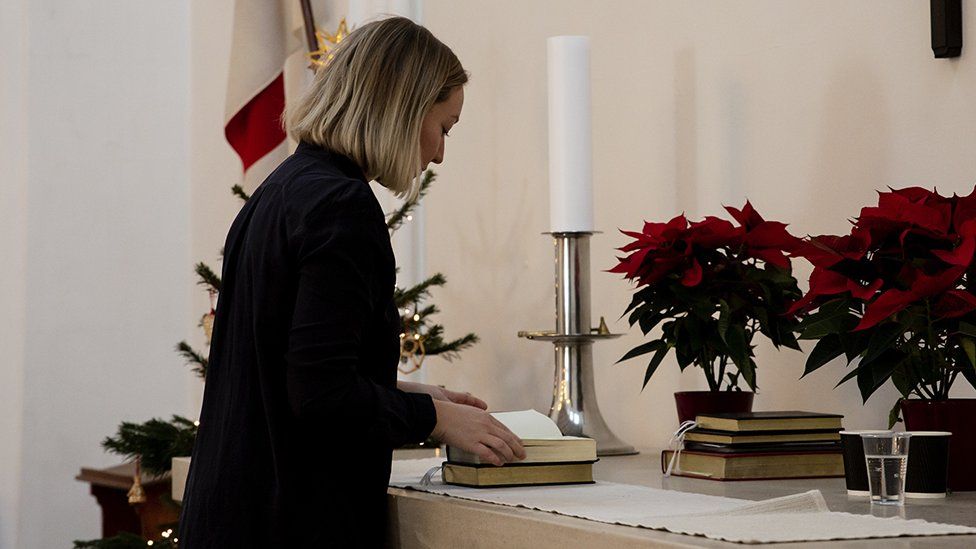
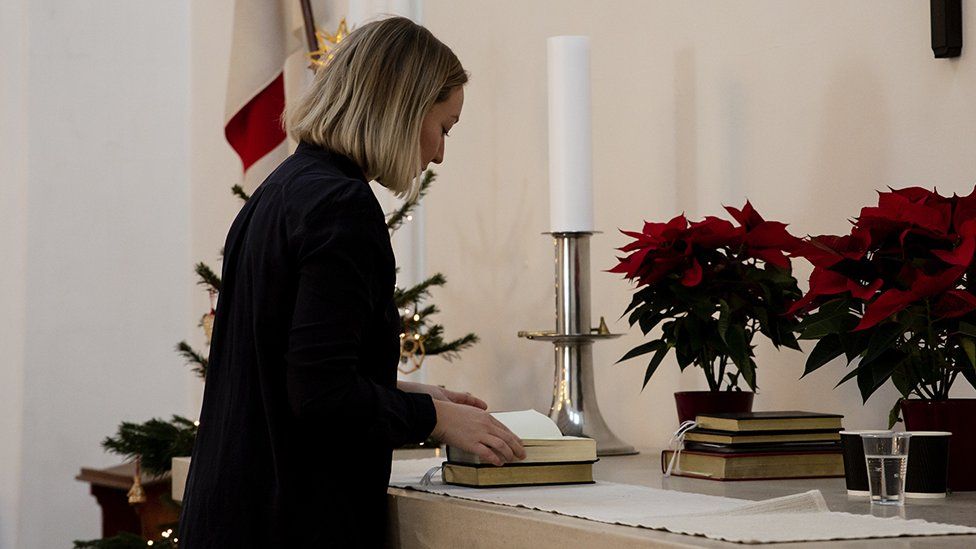 image copyrightLouise Haywood-Schiefer
image copyrightLouise Haywood-Schiefer At times of great uncertainty, many people turn to faith leaders for support, but with the current social restrictions, it’s more difficult than ever for ministers to offer pastoral and spiritual care to their congregations.
Photographer Louise Haywood-Schiefer set out to photograph Christian chaplains from churches and institutions around London to discover how they are facing these challenges.

Reverend Bola Adamolekun, chaplain at HM Prison Brixton
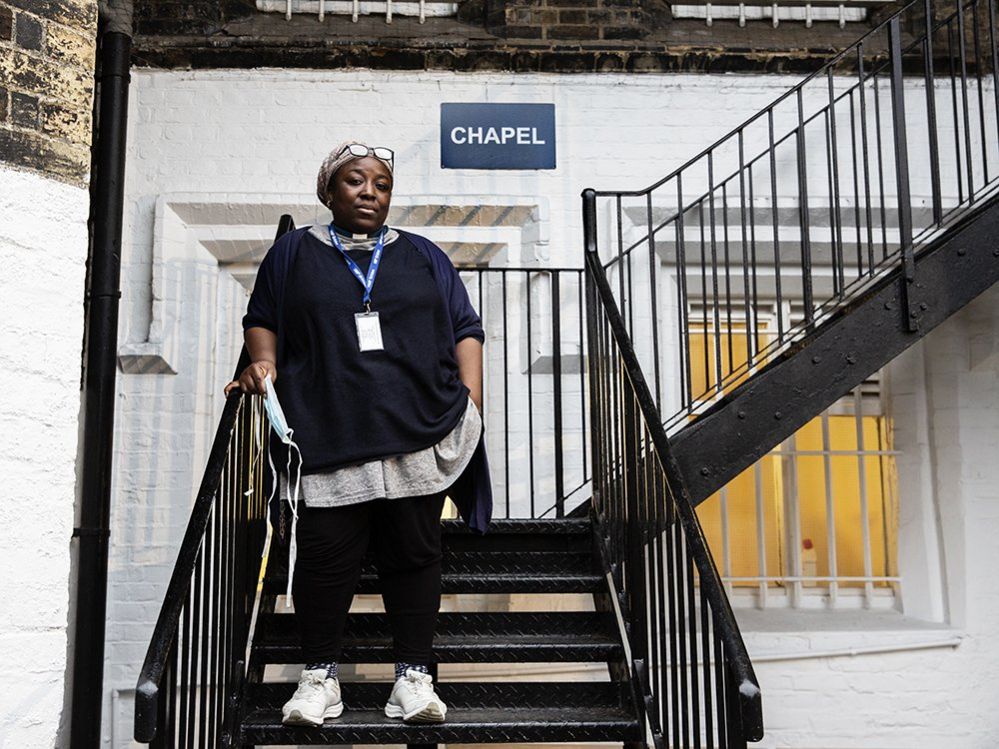 image copyrightLouise Haywood-Schiefer
image copyrightLouise Haywood-SchieferHow do you provide comfort and solace to guys who are stuck behind doors for a ridiculous amount of time?
I’ve found that if you make the time, the people you speak to are more open now and there’s more opportunity for that conversation to get deeper and be more meaningful.
It’s been less about just wanting an excuse to get out of the cell, it’s almost like they’ve treated it as a gift and they’ve decided that if I can engage with them, they will engage with me too.
You can come across some truly broken and desperate cases, it’s really heartbreaking sometimes. There are a lot of people in prison for criminal reasons and there are a lot of people in prison because society has been criminal to them.

Pastor Johanne Nørtoft Thomsen, pastor and student chaplain at the Danish Church in London
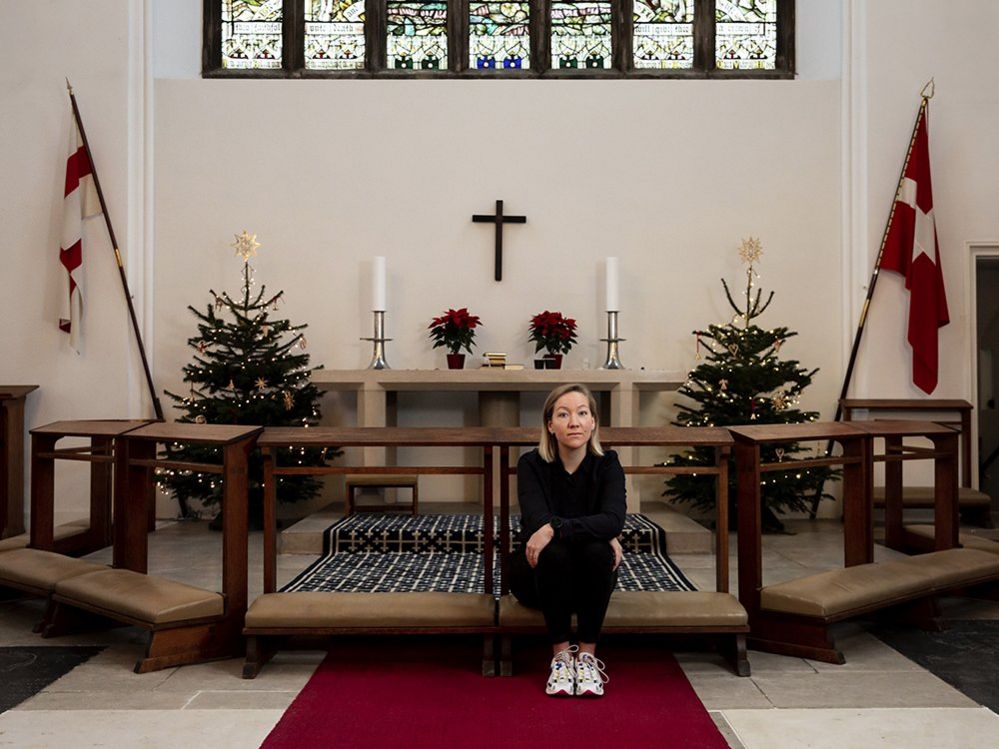 image copyrightLouise Haywood-Schiefer
image copyrightLouise Haywood-Schiefer My main task as student chaplain is to provide confidential one-to-one counselling sessions with Danish students here in London.
The counselling sessions that I offer to the students aren’t necessarily about religious beliefs or their thoughts about God, it can be about life and existential thoughts.
Before Covid, the themes were generally the difficulties in student life, feelings about not being good enough and exam anxiety. Now it’s a lot about Covid and the uncertainty that’s affecting all of us.
It’s so difficult for human beings in general to live in uncertainty and not be able to plan anything or to see that the plans that you’ve made are not going to happen.
Being on Zoom with lots of people can offer many positives if you feel isolated, but it can also give you an empty feeling after you’ve closed down the room. It’s a strange feeling for the body, because even though your mind knows you’ve been together with people, your body hasn’t felt it.

Reverend Jonathan Baldwin, head chaplain at Gatwick Airport
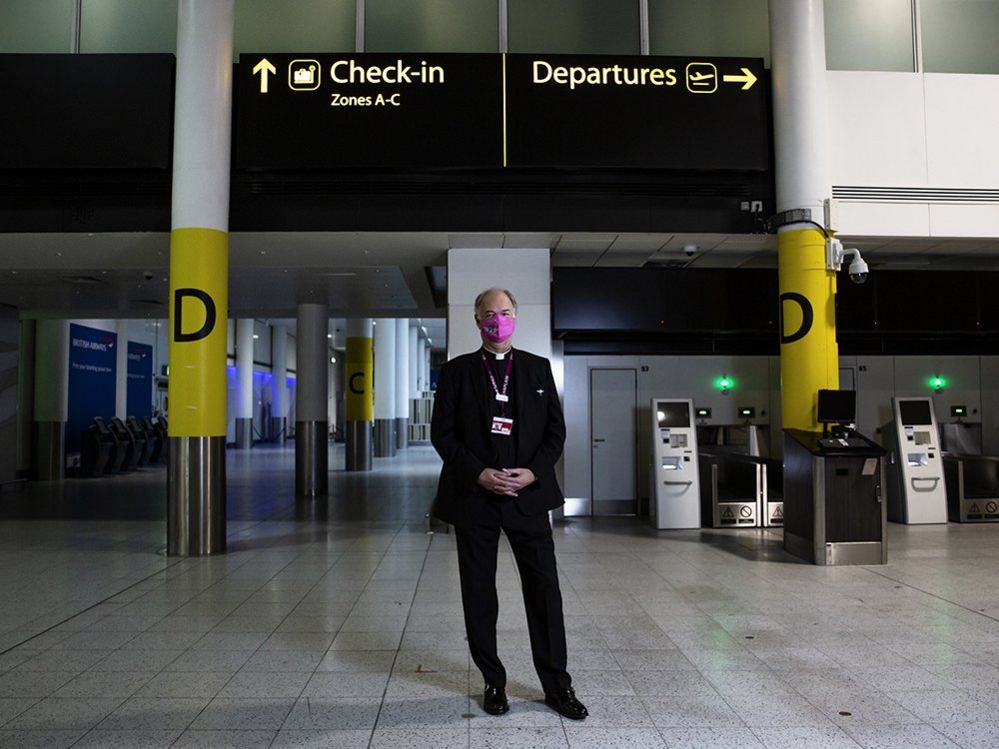 image copyrightLouise Haywood-Schiefer
image copyrightLouise Haywood-Schiefer The airport is my life, it’s my parish.
You build up relationships, you get to see people regularly and over 18 years here, I’ve done baptisms, weddings and sadly, funerals.
We have a passing congregation except for our “regular irregulars” who we only see two or three times a year, and there are currently fewer people coming into the chapel for worship, but the pastoral care hasn’t gone.
I’m still walking around and chatting to anybody at any time but our passenger numbers have massively depleted.
The wonderful thing is that the staff have got a little more time, they’re not so rushed or pressurised and you can pick up more of an in-depth conversation.
Like with the cleaners, there was one lad who came up to me and said: “Can I have a chat?”. I’ve not met him before but wallop, it all came out.

Reverend Jonathan Croucher, Christ Church, Gipsy Hill
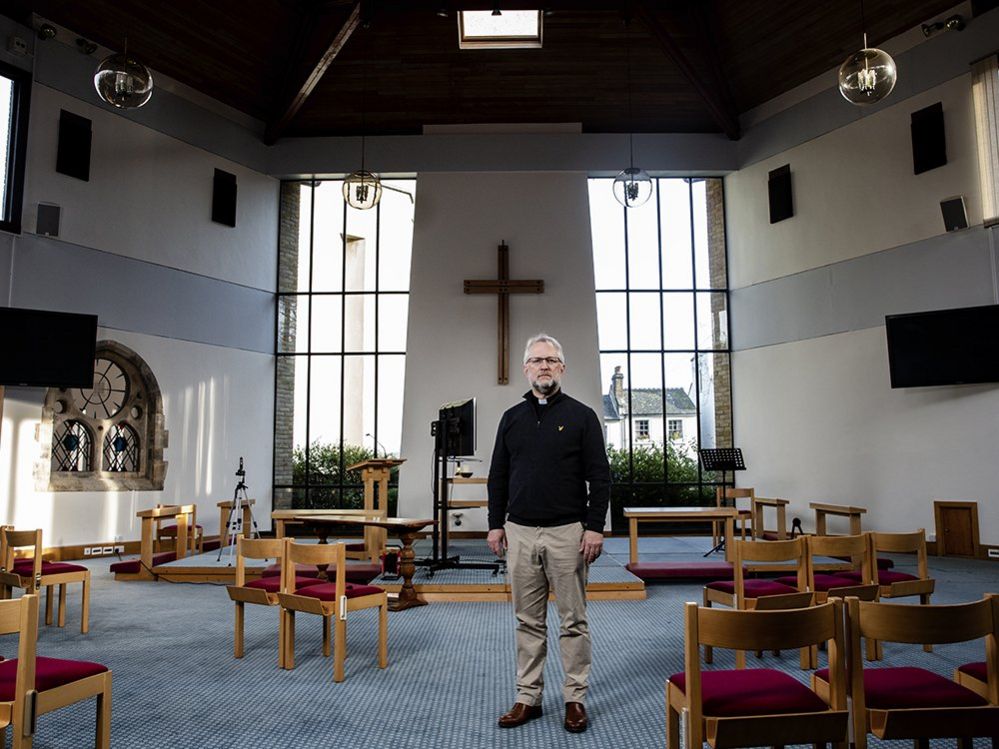 image copyrightLouise Haywood-Schiefer
image copyrightLouise Haywood-SchieferLive-streaming on a phone with a microphone plugged in gives you such good quality without any of the complexity.
I just stand up and preach like I would on a normal Sunday which I think gives the sense of being gathered together during the services, even if we aren’t physically together in the building.
From March to July, when we were properly locked down, I was broadcasting services from the vicarage. My wife and I had my four teenage children at home who all appeared on video at various points which actually was one of the lovely things about that period of time.
Quite a lot of people have told me since that seeing the vicar and his family together in the same situation as them was actually really significant. This idea that although everything seemed to be falling apart, there was a consistency.

Reverend Harry Ching, assistant vicar for international ministry and priest to the Chinese congregation at St Martin in the Fields, London
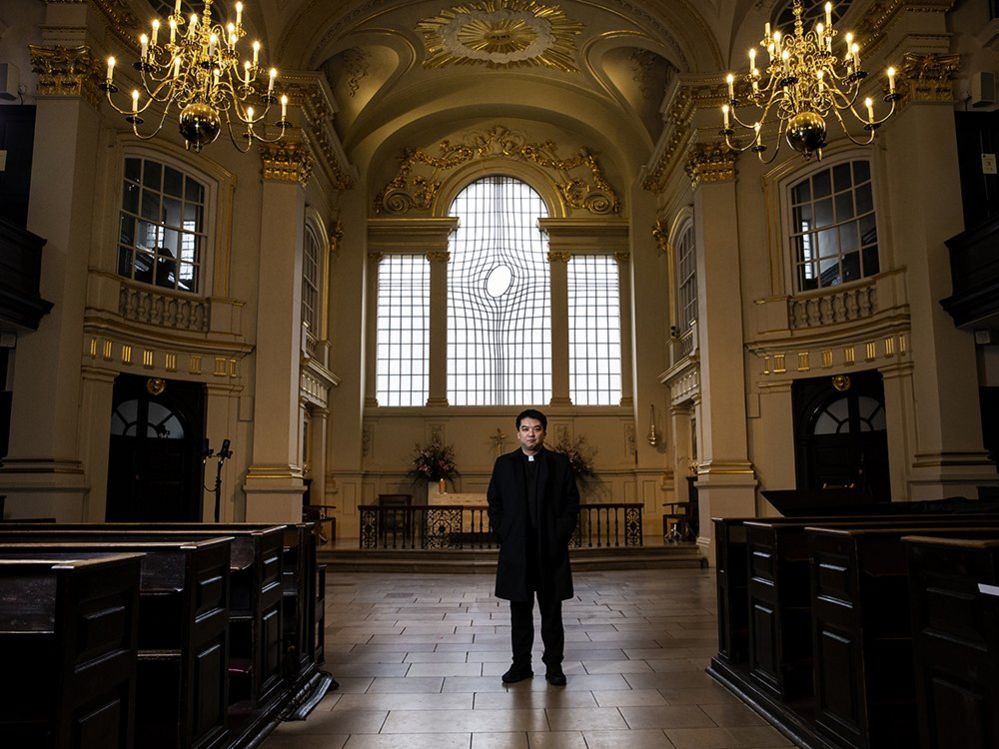 image copyrightLouise Haywood-Schiefer
image copyrightLouise Haywood-Schiefer I got my minister’s licence in the last week of February, just before the lockdown. In a spiritual way I feel I got here at the right time because if I had arrived a little later I wouldn’t have been able to settle in as well.
My primary focus is the Chinese congregation who commute here from all across London because we do services in Cantonese and Mandarin.
I lived in Britain for many years before wearing a clerical collar, and this is the first time I’ve been racially abused by strangers.
During the first week of lockdown, I went to a store to buy communion wine and an Italian gentleman served me. Italy had been badly hit with Covid at that time and obviously there was something in our interaction he didn’t like or maybe it was because of the atmosphere here, but he completely took what I said the wrong way and it took us a few minutes, with another colleague of his involved, to resolve the misunderstanding.
For me, things like that are unprecedented because I’ve integrated into this country very well. I went to school here and I see myself as British too, so I never would have imagined my Chinese identity would be exposed and abused in that way.
The word “crisis” in Chinese is written in two parts. The first part means danger and the second word is possibility. When there’s a crisis, there’s also hope.

Reverend Dr Jenny Morgans, university chaplain at King’s College London
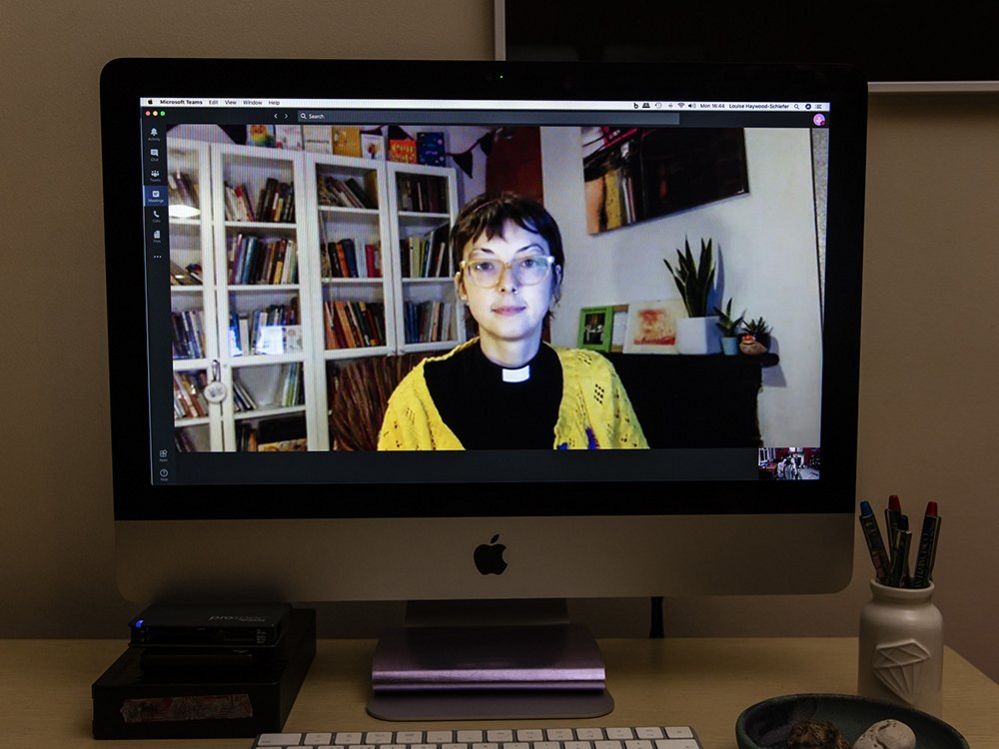 image copyrightLouise Haywood-Schiefer
image copyrightLouise Haywood-Schiefer It’s a really hard time to be a student right now and nothing can get this time back for them.
Many feel very isolated and are having to work at home with their parents which is especially bad for those who aren’t in very good family relationships, or who don’t have a good internet connection or private space to work in.
I spoke to one student who told me that none of his lectures is at a specific time, they’re all pre-recorded. So he can instantly access all his lectures for the rest of the year but he doesn’t do it, because there’s no urgency for him and he is really struggling with motivation.
He doesn’t have any seminars or any way of properly talking to his classmates so he isn’t doing the work.
I really miss being present for students.
One positive outcome from this is the mindfulness session I’ve been running since the first lockdown. It’s quite small but it’s often with the same people who would usually be based at different campuses and wouldn’t be able to meet in person.
We talk about our weeks and our ups and downs so we’ve got to know one another quite well and it feels like we’ve been on this journey together.

Padre John Vincent CF, chaplain to the Household Division, The Royal Military Chapel (The Guards’ Chapel)
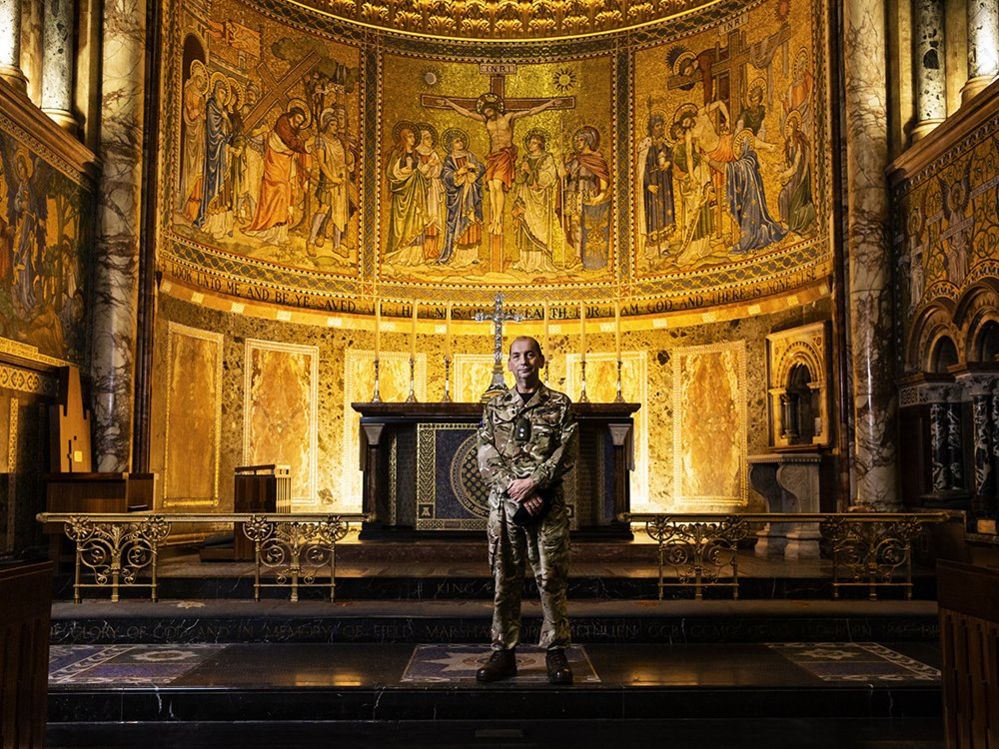 image copyrightLouise Haywood-Schiefer
image copyrightLouise Haywood-SchieferSoldiers are trained to deal with what’s in front of them, so fighting Covid is no different from fighting a physical enemy in terms of approach, but usually that involves deploying on operations and being away for six months at a time.
It’s easy to isolate yourself from your family if you’re 2,000 miles away in a desert somewhere, but when your family is just a short journey away, some people have found that a challenge.
The Guards’ Chapel family is much bigger than just those we see here on a Sunday. Most of our congregation are people who either have a connection with the military, or they like military music, so as soon as we got wind that churches were going to close, our choir came in to record three months of music in a day and we then started producing a weekly podcast.
I thought it was important to have some sort of presence out there and it really took off so we’re now reaching a very significant audience.
When you’re on an operation in a war zone you face all sorts of restrictions from your movements and daily routines, to not being able to see or even speak to loved ones for weeks on end.
The way you deal with it is to ask yourself,” What can I achieve today?” rather than thinking of how many months more there might be.
That’s been my mental approach to this and I’ve tried to enjoy and cherish the things I am able to do.
There will be an end to this at some point – you just have to readjust your sights.

Interviews and portraits by photographer Louise Haywood-Schiefer




